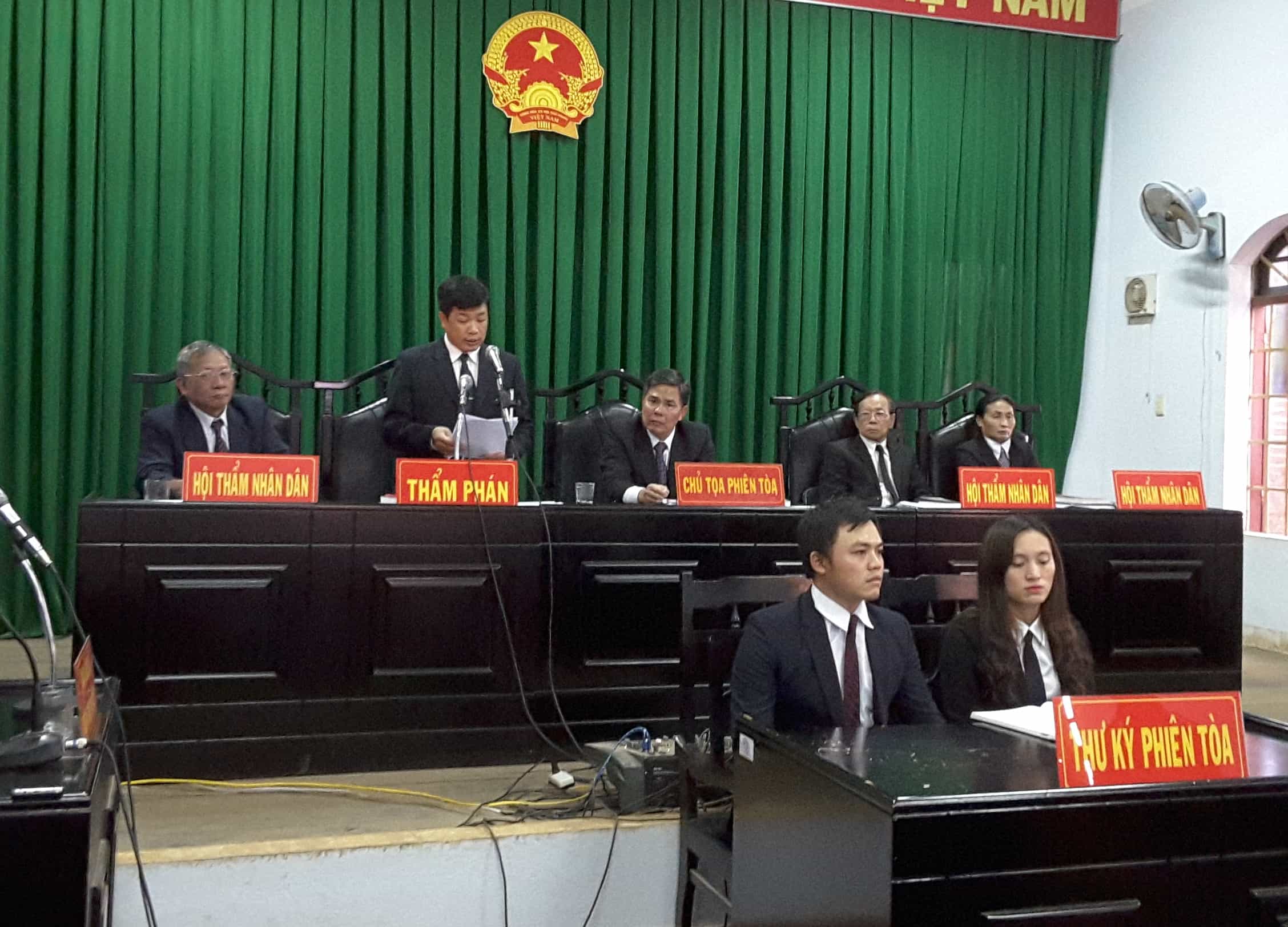Entitlements and policies toward judges in Vietnam
What are the entitlements and policies toward judges in Vietnam? - My Chi (Binh Duong)

Entitlements and policies toward judges in Vietnam (Internet image)
Regarding this issue, LawNet would like to answer as follows:
1. Entitlements and policies toward judges in Vietnam
Entitlements and policies toward judges in Vietnam under Article 75 of the Law on Organization of People s Courts 2014 are as follows:
- The State shall adopt preferential policies on salaries and allowances for judges.
- Judges shall be provided with formal attires and judge identity cards to perform their duties.
- The honor and prestige of judges shall be respected; and judges shall be protected while performing official duties and in case of necessity.
- Judges shall be trained and retrained to improve their professional qualifications and court skills.
- All acts of obstructing, intimidating, infringing upon lives or health, offending the honor or dignity of judges and their relatives are strictly prohibited.
- Judges shall be honored, commended and rewarded in accordance with the law on emulation and commendation.
- Salaries, allowances, model attires, allocation and use of attires and judge identity cards shall be stipulated by the National Assembly Standing Committee at the proposal of the Chief Justice of the Supreme People’s Court.
2. Responsibilities of judges in Vietnam
The responsibilities of judges in Vietnam under Article 76 of the Law on Organization of People s Courts 2014 are as follows:
- To be loyal to the Fatherland and exemplary in abiding by the Constitution and law.
- To respect, dedicatedly serve, keep close ties with, listen to opinions of, and submit to supervision by, the people.
- To be independent, impartial and objective, and safeguard justice in adjudication; to observe the code of conduct and professional ethics of judges, and preserve the reputation of courts.
- To protect state secrets and work secrets in accordance with law.
- To learn and study to elevate their knowledge, political level and professional qualifications and skills.
- To be held responsible before law for the performance of their duties, exercise of their powers and for their decisions. If committing illegal acts, to be disciplined or examined for penal liability in accordance with law depending on the nature and seriousness of their violations.
If judges cause damage while performing their duties or exercising their powers, their courts shall pay compensations for damage and they shall pay indemnities to their courts in accordance with law.
3. Regulations on rotation of judges in Vietnam
Regulations on rotation of judges under Article 79 of the Law on Organization of People s Courts 2014 are as follows:
- The rotation of judges to hold leading or managerial positions in courts shall be conducted to serve requirements of their duties and personnel plans.
- The Chief Justice of the Supreme People’s Court shall decide on rotation of judges from one people’s court to another that neither has the same territorial jurisdiction nor is based within the same province or centrally run city.
- Chief justices of people’s courts of provinces or centrally run cities shall decide on rotation of judges from one people’s court to another within the same territorial jurisdiction.
- The Minister of National Defense shall decide on rotation of judges from one military court to another after reaching agreement with the Chief Justice of the Supreme People’s Court.
4. Regulations on Secondment of judges
Regulations on the secondment of judges under Article 80 of the Law on Organization of People s Courts 2014 are as follows:
- The secondment of judges shall be conducted to ensure that courts can perform their adjudicating functions and duties.
- The Chief Justice of the Supreme People’s Court shall decide to second judges from one people’s court to another that neither has the same territorial jurisdiction nor is based within the same province or centrally run city to perform duties for a definite term.
- Chief justices of people’s courts of provinces or centrally run cities shall decide to second judges from one people’s court to another within the same territorial jurisdiction.
- The Minister of National Defense shall decide to second judges from one military court to another to perform duties for a definite term.
- The secondment term of judges prescribed in Clauses 2, 3 and 4 Article 80 of the Law on Organization of People s Courts 2014 must not exceed 3 years.
- Key word:
- judges
- in Vietnam
- Cases of land rent exemption and reduction under the latest regulations in Vietnam
- Economic infrastructure and social infrastructure system in Thu Duc City, Ho Chi Minh City
- Regulations on ordination with foreign elements in religious organizations in Vietnam
- Increase land compensation prices in Vietnam from January 1, 2026
- Determination of land compensation levels for damage during land requisition process in Vietnam
- Who is permitted to purchase social housing according to latest regulations in Vietnam?
-

- Emergency response and search and rescue organizations ...
- 10:29, 11/09/2024
-

- Handling of the acceptance results of ministerial ...
- 09:30, 11/09/2024
-

- Guidance on unexploded ordnance investigation ...
- 18:30, 09/09/2024
-

- Sources of the National database on construction ...
- 16:37, 09/09/2024
-

- General regulations on the implementation of administrative ...
- 11:30, 09/09/2024
-

- Notable new policies of Vietnam effective as of ...
- 16:26, 11/04/2025
-
.Medium.png)
- Notable documents of Vietnam in the previous week ...
- 16:21, 11/04/2025
-
.Medium.png)
- Notable documents of Vietnam in the previous week ...
- 16:11, 02/04/2025
-
.Medium.png)
- Notable new policies of Vietnam to be effective ...
- 16:04, 02/04/2025
-
.Medium.png)
- Notable new policies of Vietnam effective from ...
- 14:51, 21/03/2025

 Article table of contents
Article table of contents
